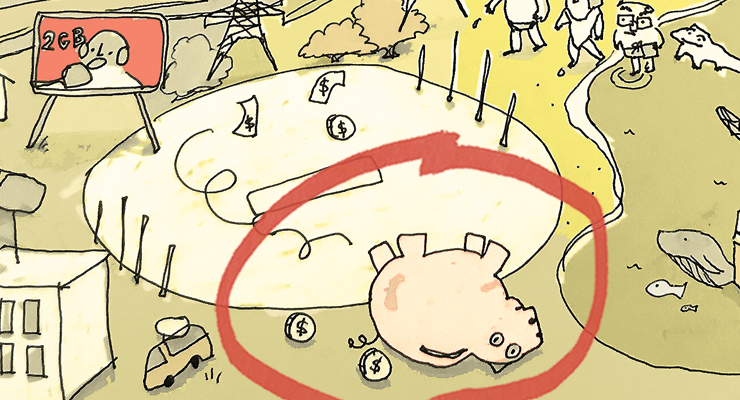Crikey asked Scott Morrison to respond to the lies and falsehoods we’ve compiled. His silence is just a further demonstration of a communication style that refuses to engage.
After compiling a detailed dossier of Scott Morrison’s lies and falsehoods, we were naturally anxious to hear his response to them — whether he wanted to argue the toss over them, or explain how in fact he hadn’t been lying, or was correct in his factual claims.
But we also wanted to know about Morrison’s attitude toward lying as a political practice — after all, politicians of all stripes are renowned for distorting the truth, and no side has a monopoly on blatant untruths. (Remember the role Labor’s Mediscare played in the 2016 election?)
Yesterday morning we presented the dossier of Morrison’s lies and falsehoods to the Prime Minister’s Office and invited them to respond to a series of questions, then followed up last night. As is so often the case with the Morrison government, there was simply no response.
Here’s what we asked:
- Does the PM dispute the characterisation of any of these as lies and falsehoods?
- Does the PM wish to correct the record in relation to any of these statements beyond the two instances where he has admitted being wrong?
- Does the PM believe the telling of lies degrades public trust in politicians and the political process?
- Does the PM see stating falsehoods or misrepresenting facts as a legitimate tool in political debate, or one that all sides engage in?
- Does the PM believe a politician conveying lies and misinformation in public is a moral or ethical issue, or only a political issue?
- Does the PM believe that as the nation’s leader, he has a particular obligation to observe high standards of accuracy in his public statements, or should he merely observe the same standards as apply generally to politicians?
- What would the PM advise children, including his own, about the upside and downside of telling lies?
A method of political communication that involves a ready recourse to lies and refuses to engage with the substance of political debate or legitimate media questions — a practice by no means confined to the government’s treatment of Crikey — might be regarded as smart tactics.
But it paints a bleak picture of politics — of a government with virtually nothing to say except words intended to deceive.

Help us keep up the fight
Get Crikey for just $1 a week and support our journalists’ important work of uncovering the hypocrisies that infest our corridors of power.
If you haven’t joined us yet, subscribe today and get your first 12 weeks for $12.
Cancel anytime.
Peter Fray
Editor-in-chief of Crikey







